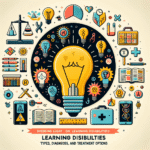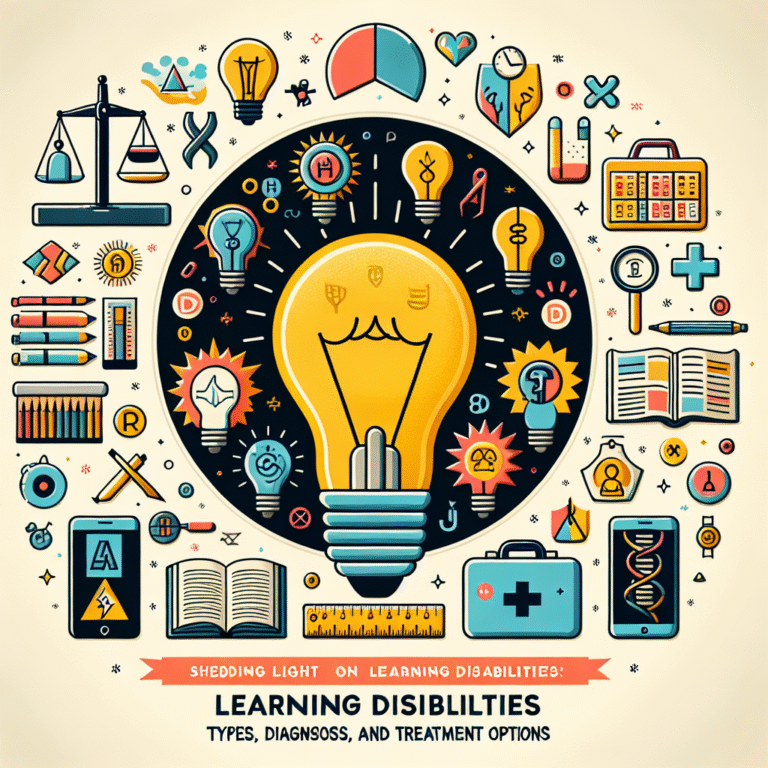
Introduction
Have you ever wondered why certain memories linger while others fade away? Why do some people excel in learning new languages while others struggle? These questions penetrate the complexities of the human mind, leading us into the fascinating realm of neuropsychology. This article, Unlocking the Mind: A Journey into the Field of Neuropsychology, explores the intricate connections between brain function and behavior, providing insights into how we can harness this knowledge to improve our lives.
In today’s fast-paced world, understanding the workings of our mind is more crucial than ever. Armed with the knowledge from neuropsychology, we can unlock our potential, enhance our cognitive abilities, and understand the impacts of various conditions on mental processes. Join us on this enlightening journey as we delve into the structure, methodologies, and real-world applications of neuropsychology.
The Foundations of Neuropsychology
What is Neuropsychology?
At its core, neuropsychology is the study of how the brain influences thoughts, emotions, and behaviors. It bridges the fields of neuroscience and psychology, focusing on the effects of brain injuries and neurological diseases on cognitive functions. By examining how different parts of the brain contribute to our experiences, neuropsychologists can diagnose and treat various mental and cognitive issues.
The Role of the Brain: An Overview
The brain consists of several key regions, each responsible for different functions:
| Brain Region | Primary Functions |
|---|---|
| Frontal Lobe | Decision-making, problem-solving, planning |
| Temporal Lobe | Memory, language, auditory processing |
| Parietal Lobe | Sensory perception, spatial orientation |
| Occipital Lobe | Visual processing |
| Limbic System | Emotion regulation, motivation, memory |
By understanding these regions, neuropsychologists can identify how brain damage or dysfunction affects specific cognitive abilities, offering crucial insights for effective treatment.
The Journey Begins: Methodologies in Neuropsychology
Neuropsychological Testing
One of the essential tools in neuropsychology is standardized testing, which helps evaluate cognitive function across various domains. These tests can measure:
- Memory and recall
- Attention and concentration
- Language capabilities
- Executive functions (planning, organization)
Case Study: The Man Who Mistook His Wife for a Hat
In Oliver Sacks’ book, a famous case explores the life of Dr. P., a musician who loses the ability to recognize faces and objects following a neurological incident. Neuropsychological testing revealed damage to the temporal lobe, leading to significant implications for his identity and interactions. This case illustrates how neuropsychological tests can pinpoint specific cognitive deficits, guiding treatment and therapy.
Brain Imaging Techniques
Advancements in brain imaging have revolutionized neuropsychology. Techniques like fMRI (functional Magnetic Resonance Imaging) and PET (Positron Emission Tomography) allow researchers to visualize brain activity in real-time.
Table: Comparison of Brain Imaging Techniques
| Technique | Pros | Cons |
|---|---|---|
| fMRI | Non-invasive, high spatial resolution | Expensive, limited time resolution |
| PET | Good for tracking brain metabolism | Invasive, lower spatial resolution |
These imaging techniques help researchers understand how various cognitive tasks activate specific brain regions, further guiding therapeutic interventions.
Real-World Applications of Neuropsychology
Cognitive Rehabilitation
Neuropsychology plays a critical role in cognitive rehabilitation, helping patients regain lost cognitive functions due to injury or illness. Techniques such as cognitive training and behavioral strategies facilitate recovery.
Case Study: Stroke Rehabilitation
Consider a woman recovering from a stroke that impaired her language skills. Through tailored cognitive rehabilitation, including speech therapy and specific exercises targeting her deficits, she gradually regained her ability to communicate effectively. This case exemplifies how neuropsychology directly impacts life quality improvement.
Understanding Mental Disorders
Neuropsychology enhances our understanding of mental disorders like ADHD, schizophrenia, and depression. By examining the underlying neurobiological mechanisms, we can develop more effective treatments.
Case Study: ADHD in Children
Research has shown that children with ADHD often exhibit distinct patterns of brain activity. Neuropsychological assessments revealed deficits in executive function and impulse control. By integrating this knowledge into treatment plans, parents and educators can employ targeted strategies, such as behavioral interventions and academic accommodations.
Unlocking the Mind Through Education
The Importance of Early Intervention
Early intervention is essential in maximizing cognitive potential and mitigating deficits. Neuropsychological assessments can help identify learning disabilities and developmental disorders at a young age, allowing for timely support.
Case Study: Learning Disabilities in Young Children
In a school setting, a child struggling with reading was assessed through neuropsychological testing. The assessment revealed a specific learning disability related to phonological processing, which informed a tailored intervention plan involving multisensory learning strategies. This proactive approach resulted in significant academic improvement.
Public Awareness and Stigma Reduction
Awareness campaigns highlighting the realities of neurological and psychological conditions foster understanding and reduce stigma. By showcasing the successes of neuropsychology, we can encourage more individuals to seek help and access treatment.
Breaking New Ground: The Future of Neuropsychology
Advancements in Technology
The future of neuropsychology is bright, with technology leading the charge. Concepts like artificial intelligence and machine learning are being integrated into neuropsychological assessments, enhancing accuracy and efficiency.
Personalized Medicine
The rise of personalized medicine, which tailors treatments based on individual neurobiological profiles, represents a groundbreaking advancement in neuropsychology. By understanding the unique brain wiring of each individual, clinicians can provide more effective interventions.
Conclusion
In our exploration titled Unlocking the Mind: A Journey into the Field of Neuropsychology, we have traversed the complexities of the brain and its impact on behavior and cognition. Understanding the nuances of neuropsychology empowers us not only to improve individual lives but also to promote greater awareness and understanding of mental health conditions.
As we step into a future filled with technological advancements and personalized treatment options, we encourage readers to be proactive in their mental health journey. Whether through seeking assessments, engaging in cognitive rehabilitation, or simply educating oneself about the workings of the mind, every action can pave the way for a more enriching life.
FAQs
1. What does a neuropsychologist do?
A neuropsychologist assesses and treats cognitive, emotional, and behavioral issues stemming from brain dysfunction or damage.
2. How is neuropsychology different from psychology?
While psychology primarily focuses on behaviors and mental processes, neuropsychology emphasizes the link between brain functions and these processes.
3. What are common neuropsychological assessments?
Common assessments include tests for memory, attention, problem-solving skills, and language abilities.
4. How can neuropsychology help children with learning disabilities?
Neuropsychology helps identify specific cognitive strengths and weaknesses, informing tailored interventions that promote effective learning strategies.
5. What role does brain imaging play in neuropsychology?
Brain imaging provides insight into brain activity, helping researchers and clinicians understand how specific cognitive tasks are processed in the brain.
In closing, the field of neuropsychology offers profound insights and practical applications that can make a significant difference in our lives. As we continue to unlock the mysteries of the mind, let us embrace the knowledge that empowers us to lead healthier, more fulfilling lives.














